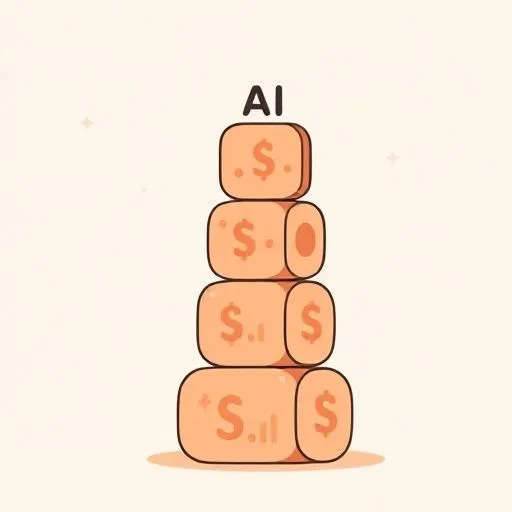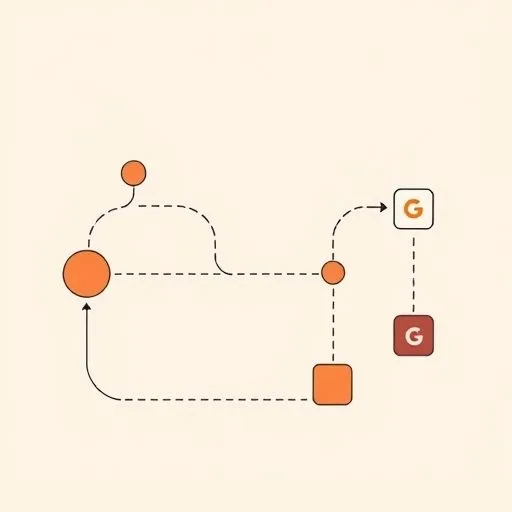
This morning, as I walked my 7-year-old daughter to her first-grade class, I couldn’t help but think about how AI has leaped from sci-fi pages to real-life paychecks. Just like when our weekly kimchi-poutine fusion night sparks my daughter’s curiosity, seeing AI’s progress gets my geek-dad heart racing. Before the school bell rang, I was already daydreaming about AI’s next big leap—and you will be too.
Beyond the Buzz: How Is AI Realistically Monetized?

Remember when AI felt like this distant concept reserved for tech enthusiasts and sci-fi fans? Those days are officially behind us. Google’s latest earnings report shows that AI is not just experimental—it’s a powerful revenue engine. The tech giant reported $10.3 billion in cloud revenue for Q2 2025, a remarkable 29% increase year-over-year, with AI services playing a central role in this growth.
Kurian made it clear that Google’s approach combines consumption-based pricing with subscription models and strategic upselling. This isn’t about theoretical potential; it really comes down to real, tangible wins—no fluff! As organizations increasingly adopt AI monetization strategies, the commercial viability becomes undeniable.
The most striking revelation? That $106 billion backlog? It’s expanding quicker than their existing revenue streams. Talk about validation for the AI revolution! When organizations are willing to commit hundreds of billions to AI services before they even receive them, you know we’re witnessing a fundamental transformation of business operations.
From Pilot Programs to Profit Centers: What Are Google’s Strategies?

What’s particularly fascinating is how Google has moved beyond the ‘pilot phase’ that many companies get stuck in. Their approach to AI monetization is practical and multifaceted. Kurian explained that once customers start using Google’s AI services, they typically end up using more of their products—a phenomenon that drives additional revenue beyond initial commitments.
It’s like discovering a favorite dish at a restaurant and suddenly wanting to try everything else on the menu! Sound familiar? Google uses consumption-based pricing, charging customers based on usage metrics like tokens processed—imagine paying for water by the drop rather than by the gallon.
For specific applications like customer service, they’ve developed ‘deflection rates’ priced based on business value: uptime, scalability, AI features, and security. The best part? Google is focusing on three clear strategies: winning new customers, expanding projects within existing customers, and upselling new products. No vague promises or theoretical benefits—just concrete business value delivered through practical applications.
Finding Your Niche in the AI Economy: What Skills Help You Succeed?

As Google develops specialized AI agents for different industries, we’re witnessing the emergence of a new kind of professional expertise. Kurian highlighted how they’ve built everything from insurance agents to research analysis tools, cybersecurity specialists, and collaboration platforms—all with industry-specific optimizations. The insurance agent behaves differently than the healthcare agent, which solves different problems than the financial services counterpart.
This specialization creates clear pathways for professionals developing domain knowledge combined with AI fluency. Consider how this specialization might parallel your own career development. When you combine your industry expertise with an understanding of how AI enhances that domain, you’re not just another employee—you become an invaluable connector between specialized knowledge and technological capability.
The AI monetization boom suggests organizations are committed to developing these specialized applications. What if you could be the bridge between your field’s deepest knowledge and the most powerful AI tools?
Stewarding Your Skills for the AI Revolution: What Does This Mean Professionally?

The AI revolution isn’t happening to us—it’s happening through us, with those who thoughtfully develop and steward their talents finding new opportunities. Google’s success with AI monetization tells us several important things about where things are headed.
First, organizations are moving beyond curiosity to concrete implementation. Those pilot programs we’ve heard about? Many are scaling into full deployments. Second, premium capabilities command premium prices—Google reports that customers are eagerly upgrading to higher-quality models at higher price points, suggesting that value-based AI solutions have strong market acceptance.
Businesses are approaching AI strategically rather than tactically. This integrated approach means that AI capabilities are becoming core to business operations rather than standalone experiments.
For professionals, this presents both an opportunity and a responsibility. The opportunity is clear: developing skills at the intersection of domain expertise and AI literacy positions you at the forefront of organizational change. The responsibility is to steward your talents—refining what you know while embracing what’s next.
The beauty of this moment is that we’re not being asked to replace our capabilities but to expand them. How might you position yourself for the AI monetization wave while staying true to your professional identity?
Source: How Google Is Already Monetizing Its AI Services To Generate Revenue, Tech Slashdot, 2025/09/09
